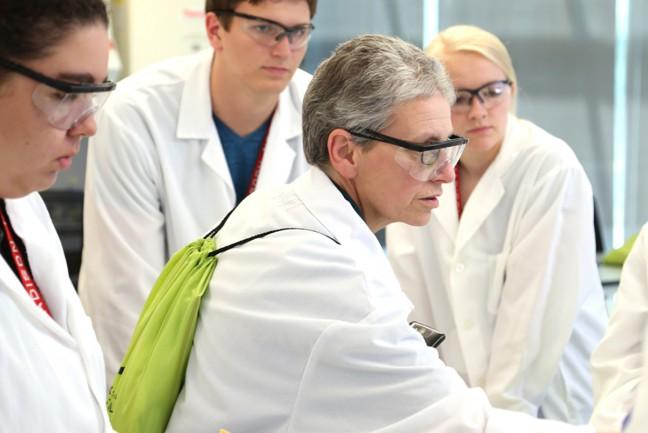As scientists continue studying fast radio bursts in space, the most sensitive neutrino telescope, known as IceCube, has set out to perform projects that will help detect more FRB’s.
Justin Vandenbroucke, a University of Wisconsin physicist and founder of IceCube, wants to demystify radio energy pulses.
“FRBs are the fastest, yet they only last for a few thousandths of a second. The discovery of an entirely new type of astrophysical event only happens once in a generation, or even less, so it’s very exciting,” said Vandenbroucke. “FRBs are still a complete mystery, so it’s important to study them with every tool we have.”
DOJ launches website tracking backlog of untested sexual assault kits
The IceCube team is continuing their research by watching the entire sky and continuously recording all the collected data. Vandenbroucke said FRBs happen at random times in the sky and are spread out, which makes it difficult to spot them.
IceCube not only watches the entire sky but also calculates the time and direction of neutrino emissions, which indicate FRBs.
“There is one direction from which radio astronomers have detected multiple FRBs,” Vandenbroucke said. “It’s still not clear whether this repeating source is unusual or if we just haven’t detected repeating bursts from the others yet.”
Vandenbroucke said this is only the beginning for IceCube and the detection of FRBs. He added they’re using new radio instruments to detect FRBs.
Wisconsin lawmaker introduces legislation to increase transparency in pharmaceutical industry
One of IceCube’s goals is to collect as much data as possible to help scientists determine what is causing the bursts, Vandenbroucke said. He believes more data will also lead to more discoveries that today’s scientists could not even predict.
“I was thrilled by the idea of combining particle physics with astrophysics and doing so using such a creative technique in one of the most amazing places on Earth, and I still am!” said Vandenbroucke.
Vandenbroucke hopes to continue working on IceCube just like co-founder of IceCube and fourth-year graduate student Sam Fahey. Fahey works to analyze data for neutrinos from IceCube that help to show more about FRBs.
“I’m looking to see if neutrino events in IceCube are correlated with FRB observations,” Fahey said. “Do neutrino interactions in our experiment occur at the same times as FRBs? Do neutrino events tend to come from FRB locations with any statistical significance?”
Fahey said the research must begin with what is even possible plausible for observation. The next step is to create a model of what an observation might look like. Fahey said, for example, researchers must consider other light factors like the observation of visible light or x-ray light, and how much of it there is.
After a model has been made, Fahey said researchers can use it to determine if their hypothesis is true or false. Fahey said overtime researchers are able to learn more about their observations and therefore learn more about their discoveries and an understanding of the universe.
“The history of physics is littered with unexpected discoveries and revelations, and as a community we know very little about what causes them. I just hope we can help theorists by doing our part to constrain models,” said Fahey.
Fahey believes there is an element of excitement for studying FRBs. He explained there is no definite answer to what researchers will find since they haven’t found it yet. This said, Fahey believes whatever discoveries are made, will help advance our knowledge of the universe.











